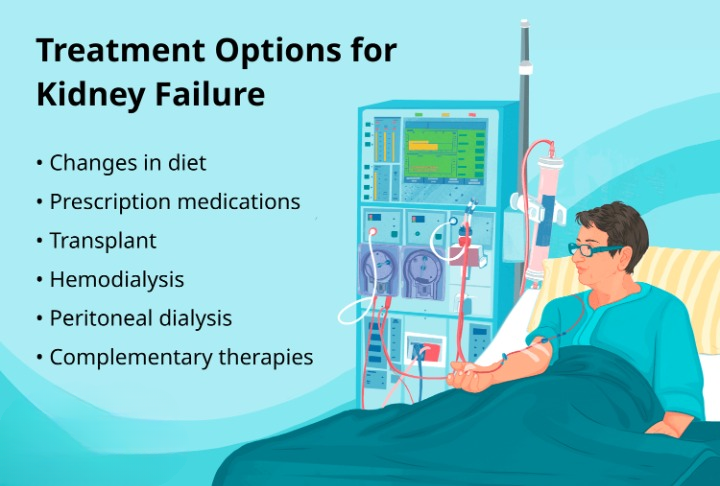Medications play a crucial role in managing kidney disease, aiming to alleviate symptoms, slow progression, and prevent complications. The choice of medications depends on the specific type and stage of kidney disease, as well as individual health factors.
Here’s an overview of commonly prescribed medications for various aspects of kidney disease treatment:
1. Blood Pressure Control:
- Angiotensin-Converting Enzyme (ACE) Inhibitors and Angiotensin II Receptor Blockers (ARBs): These medications help relax blood vessels, lower blood pressure, and reduce proteinuria (excess protein in urine), which can help protect kidney function.
2. Diabetes Management (if applicable):
- Insulin or Oral Antidiabetic Agents: For diabetic nephropathy (kidney disease caused by diabetes), tight control of blood sugar levels is essential to slow kidney damage.
3. Treatment of Anemia:
- Erythropoiesis-Stimulating Agents (ESAs): These stimulate the production of red blood cells and can help manage anemia associated with chronic kidney disease.
4. Phosphate Binders:
- Phosphate binders: Used to lower phosphate levels in the blood, which can be elevated in kidney disease due to impaired kidney function.
5. Treatment of Hyperkalemia (High Potassium):
- Potassium Binders: These medications help lower potassium levels in the blood, which can rise in kidney disease and cause serious heart problems.
6. Diuretics:
- Loop Diuretics: Often used to help manage fluid retention and swelling (edema) in individuals with impaired kidney function.
7. Cholesterol Medications:
- Statins: Used to manage cholesterol levels, which can be elevated in kidney disease and contribute to cardiovascular complications.
8. Immunosuppressants (in certain cases):
- Immunosuppressant medications: Prescribed for autoimmune conditions affecting the kidneys, such as lupus nephritis or certain types of glomerulonephritis.
9. Calcium and Vitamin D Supplements:
- Calcium and Vitamin D: Essential for bone health, as kidney disease can disrupt the body’s ability to regulate calcium and vitamin D levels.
10. Pain Management:
- Pain relievers: Such as acetaminophen or nonsteroidal anti-inflammatory drugs (NSAIDs) prescribed cautiously due to their potential impact on kidney function.
Lifestyle Modifications:
Alongside medications, lifestyle changes including a kidney-friendly diet (low in sodium, potassium, and phosphorus), regular exercise, and avoiding tobacco and excessive alcohol use are crucial in managing kidney disease.
It’s important for individuals with kidney disease to work closely with healthcare providers to monitor medication effectiveness, adjust dosages as needed, and manage potential side effects. Treatment goals focus on preserving kidney function, managing symptoms, and improving overall quality of life





Comments